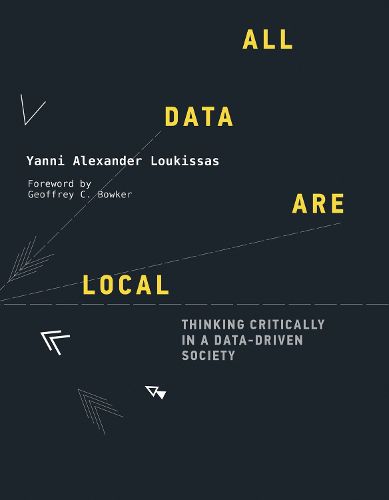Readings Newsletter
Become a Readings Member to make your shopping experience even easier.
Sign in or sign up for free!
You’re not far away from qualifying for FREE standard shipping within Australia
You’ve qualified for FREE standard shipping within Australia
The cart is loading…






How to analyze data settings rather than data sets, acknowledging the meaning-making power of the local.
In our data-driven society, it is too easy to assume the transparency of data. Instead, Yanni Loukissas argues in All Data Are Local, we should approach data sets with an awareness that data are created by humans and their dutiful machines, at a time, in a place, with the instruments at hand, for audiences that are conditioned to receive them. The term data set implies something discrete, complete, and portable, but it is none of those things. Examining a series of data sources important for understanding the state of public life in the United States-Harvard’s Arnold Arboretum, the Digital Public Library of America, UCLA’s Television News Archive, and the real estate marketplace Zillow-Loukissas shows us how to analyze data settings rather than data sets. Loukissas sets out six principles- all data are local; data have complex attachments to place; data are collected from heterogeneous sources; data and algorithms are inextricably entangled; interfaces recontextualize data; and data are indexes to local knowledge. He then provides a set of practical guidelines to follow. To make his argument, Loukissas employs a combination of qualitative research on data cultures and exploratory data visualizations. Rebutting the myth of digital universalism, Loukissas reminds us of the meaning-making power of the local.
$9.00 standard shipping within Australia
FREE standard shipping within Australia for orders over $100.00
Express & International shipping calculated at checkout
How to analyze data settings rather than data sets, acknowledging the meaning-making power of the local.
In our data-driven society, it is too easy to assume the transparency of data. Instead, Yanni Loukissas argues in All Data Are Local, we should approach data sets with an awareness that data are created by humans and their dutiful machines, at a time, in a place, with the instruments at hand, for audiences that are conditioned to receive them. The term data set implies something discrete, complete, and portable, but it is none of those things. Examining a series of data sources important for understanding the state of public life in the United States-Harvard’s Arnold Arboretum, the Digital Public Library of America, UCLA’s Television News Archive, and the real estate marketplace Zillow-Loukissas shows us how to analyze data settings rather than data sets. Loukissas sets out six principles- all data are local; data have complex attachments to place; data are collected from heterogeneous sources; data and algorithms are inextricably entangled; interfaces recontextualize data; and data are indexes to local knowledge. He then provides a set of practical guidelines to follow. To make his argument, Loukissas employs a combination of qualitative research on data cultures and exploratory data visualizations. Rebutting the myth of digital universalism, Loukissas reminds us of the meaning-making power of the local.